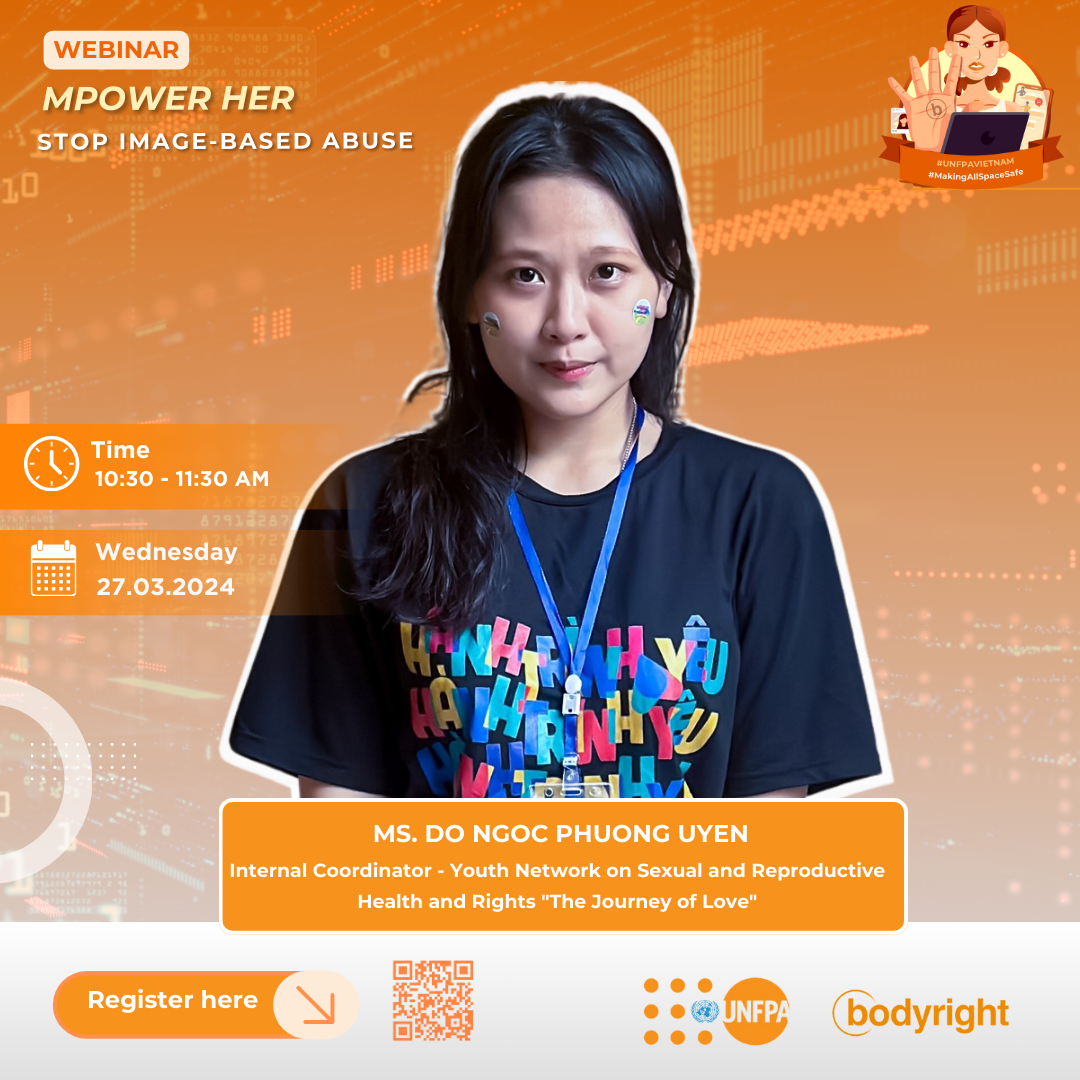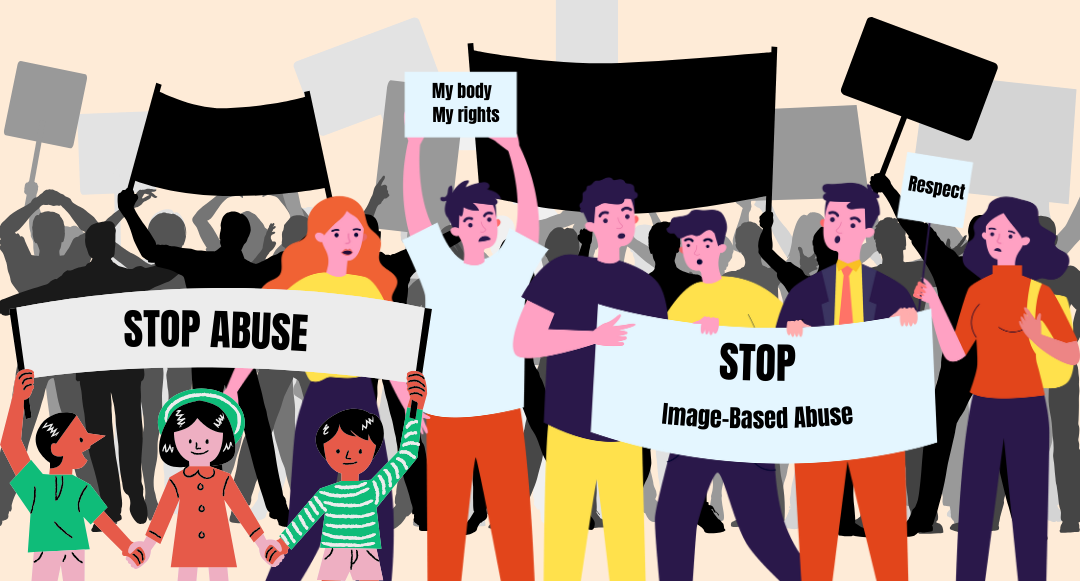"Mpower Her - Stop Image-Based Abuse" campaign
In today's tech-driven world, the risk of private image misuse is alarmingly high, especially for women and young girls. Known as image-based abuse, it takes many forms – from threats to share personal images to the creation of fake, harmful content. This is not just a digital issue; it deeply impacts victims' lives, causing social stigma, fears for physical safety, and long-term psychological distress, including anxiety, depression, PTSD, and even suicidal thoughts. Sadly, victims often face skepticism and a lack of support from both legal systems and their own communities. This only worsens their trauma and discourages them from seeking help.
UNFPA defines image-based abuse as the use of imagery, often sexual in nature, to objectify, exploit, humiliate, or harass. The ease with which technology allows the spread of such images is horrifying. Nonconsensual photos can quickly spread through text messages, online forums, and social media, or even end up on pornographic websites that fail to verify consent and age. Perpetrators often use advanced techniques like AI-powered deepfakes and exploit encryption and anonymity to mask their identities.
It's crucial to remember that image-based abuse isn't limited to women. Anyone, regardless of gender, age, or ethnicity, can become a victim. However, certain groups – including women, LGBTQI+ individuals, children, and ethnic minorities – experience this abuse at disproportionately high rates, especially those with overlapping identities.
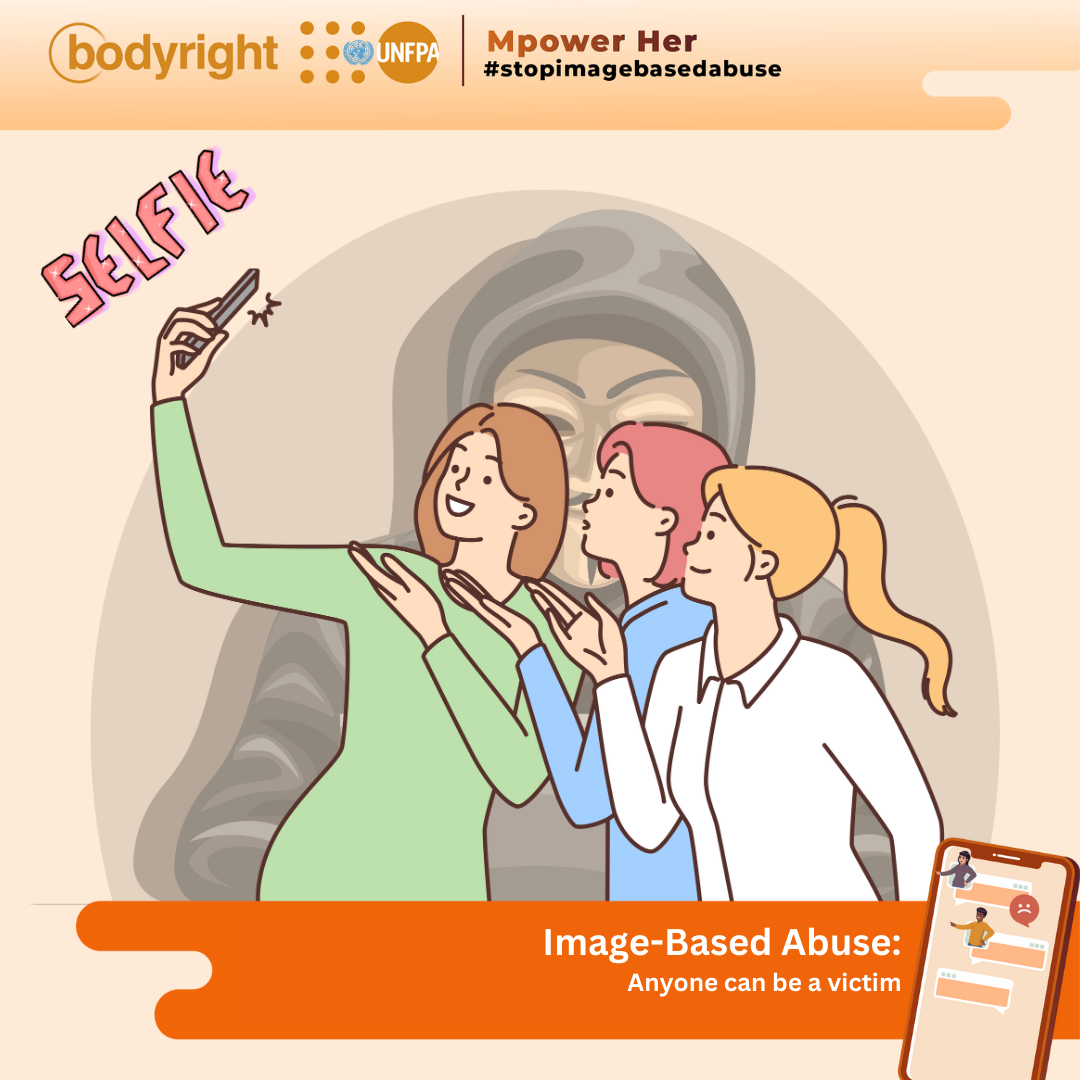 |
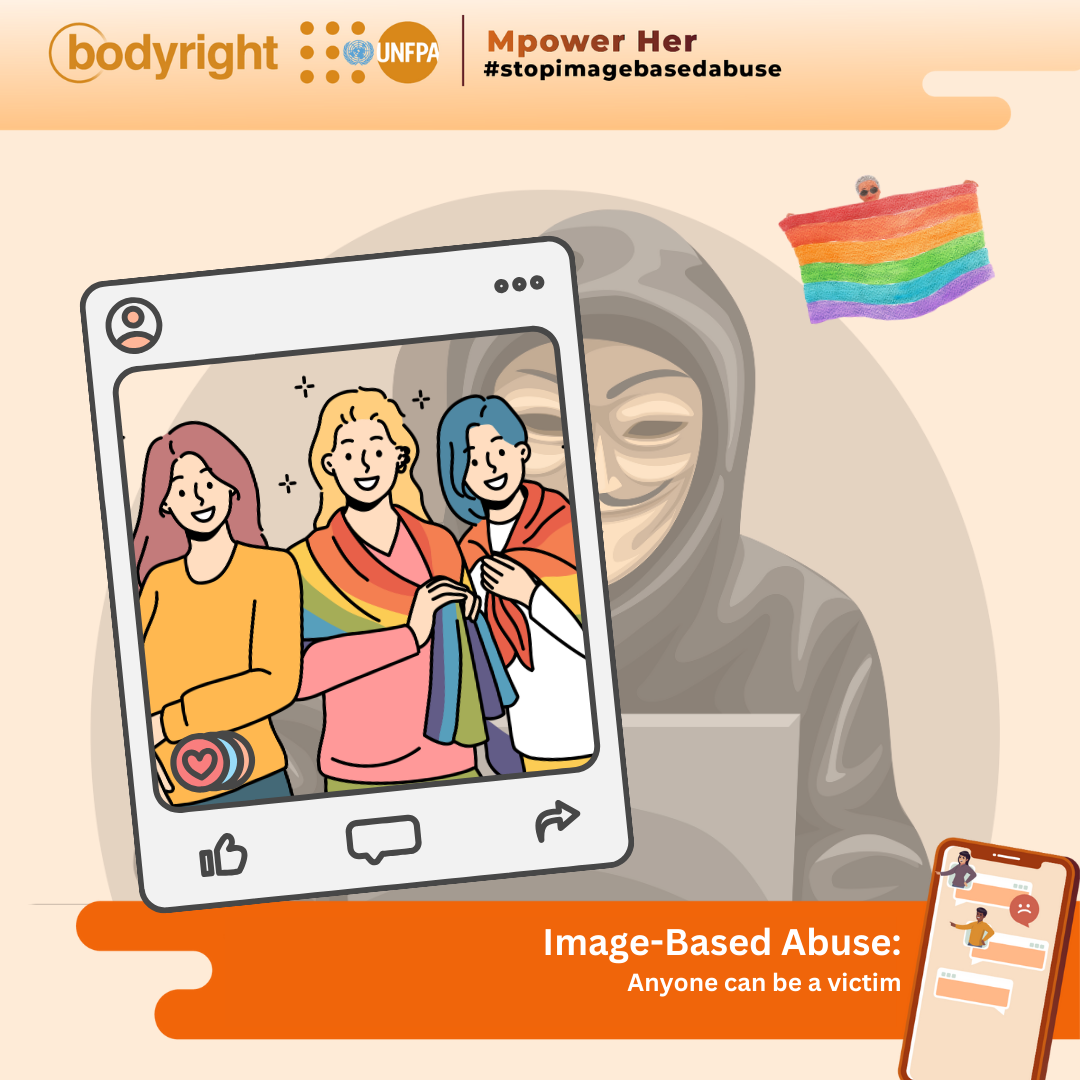 |
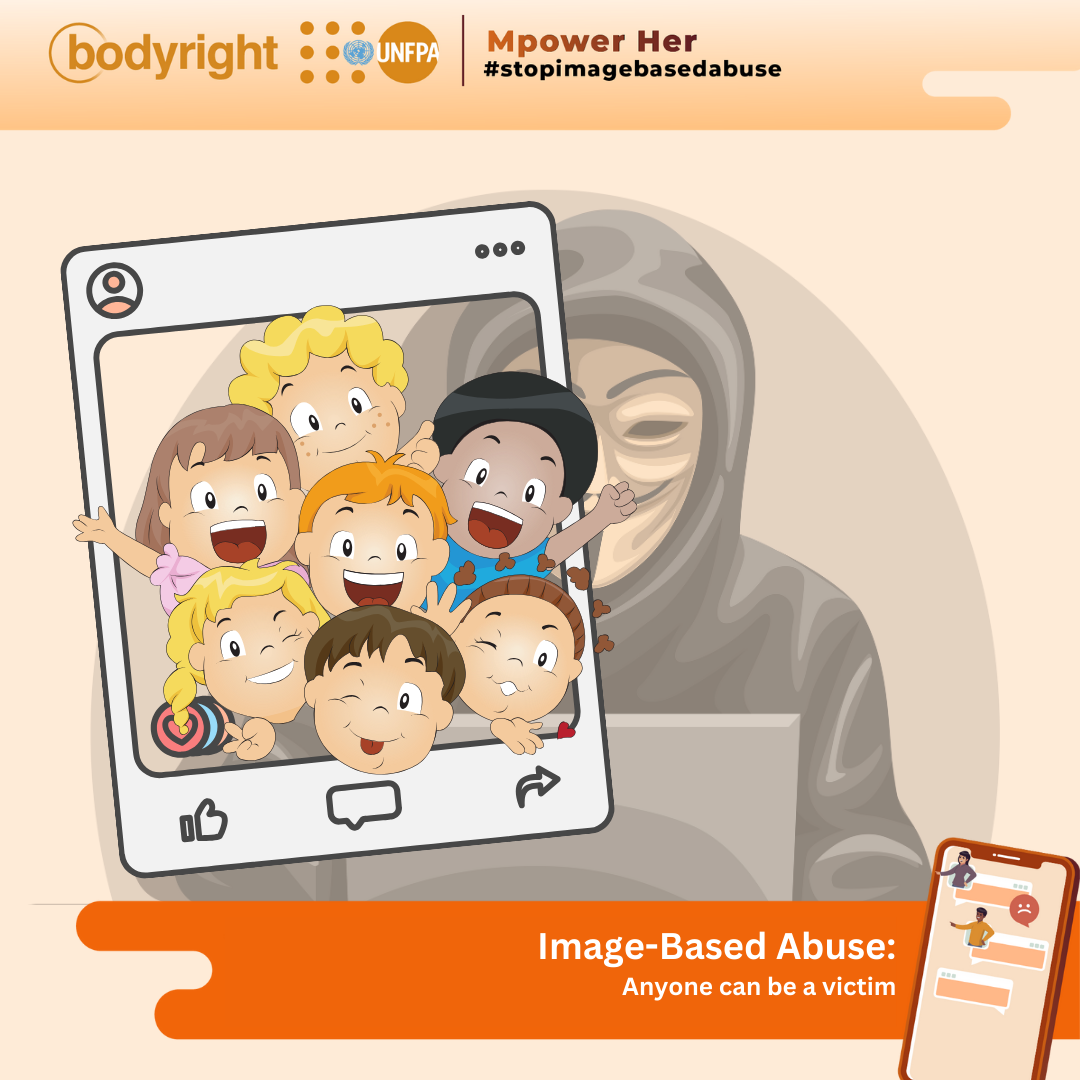 |
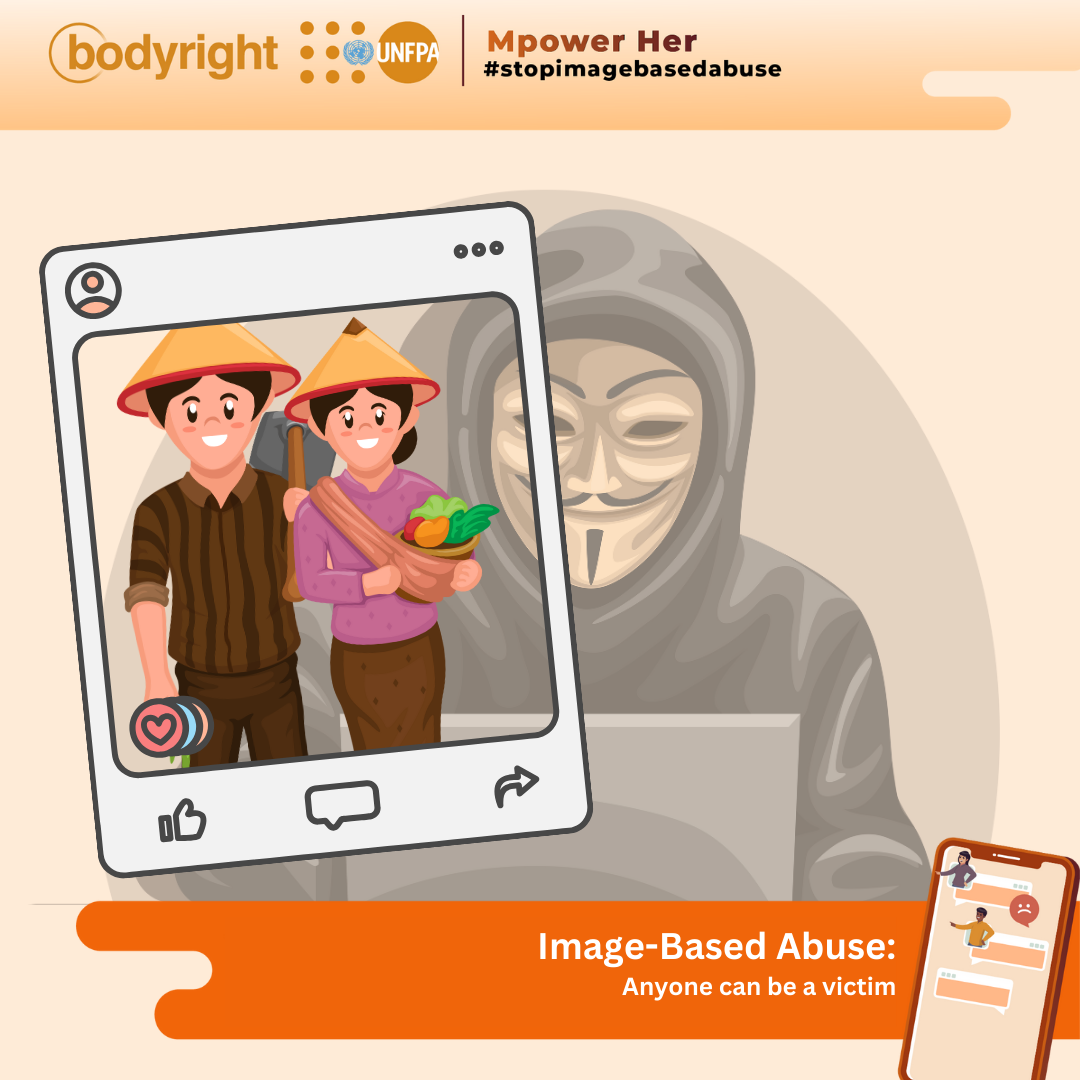 |
In 2021, a global study revealed that 57% of women had their images or videos abused or misused online (Economist Intelligence Unit 2021). This coincides with a 2019 report by Deeptrace Labs, which showed a 100% increase in deepfakes on streaming services and the "dark web" in less than 1 year. What's worse, nearly all (up to 96%) of this deepfake content targeted female celebrities. Further emphasizing the gendered nature of this issue, a recent Plan International study across 31 countries found that 58% of women have experienced online harassment and abuse. Even more disturbingly, 85% of these women endured multiple forms of technology-facilitated gender-based violence, a figure far exceeding the global estimate for violence in intimate relationships (31%). These statistics paint a clear picture: image-based abuse demands immediate action.
Through this campaign, we aim to:
- Raise awareness and promote digital safety, particularly focusing on the issue of image-based abuse;
- Provide participants with essential knowledge and tools to effectively prevent and respond to image-based abuse, empowering them as survivors and allies;
- Foster the development of a supportive online community where individuals feel safe to share their experiences and seek help and guidance;
- Encourage open dialogue regarding the necessity of establishing standards and regulations for digital platforms and products to ensure the safety and well-being of users.





